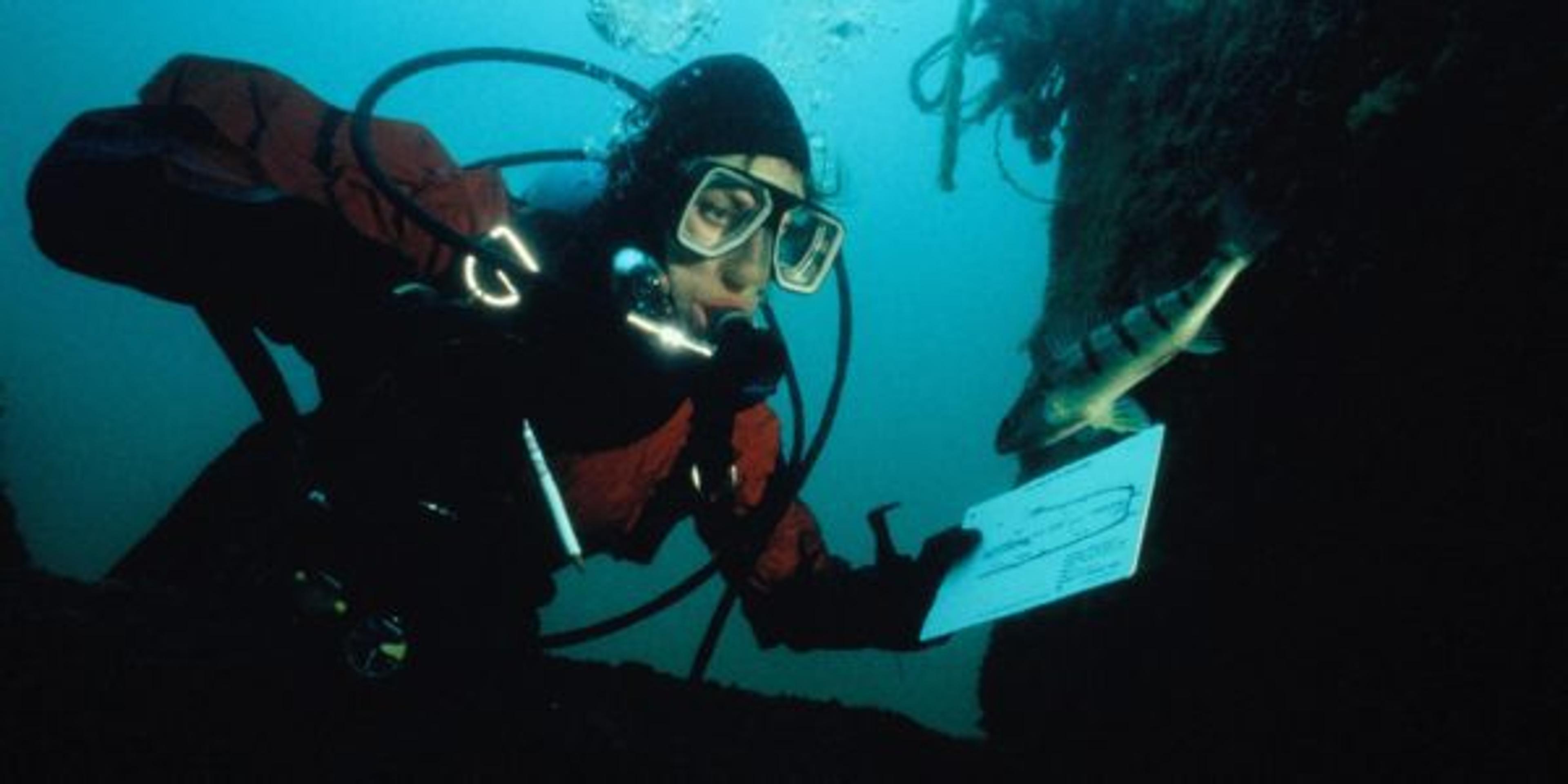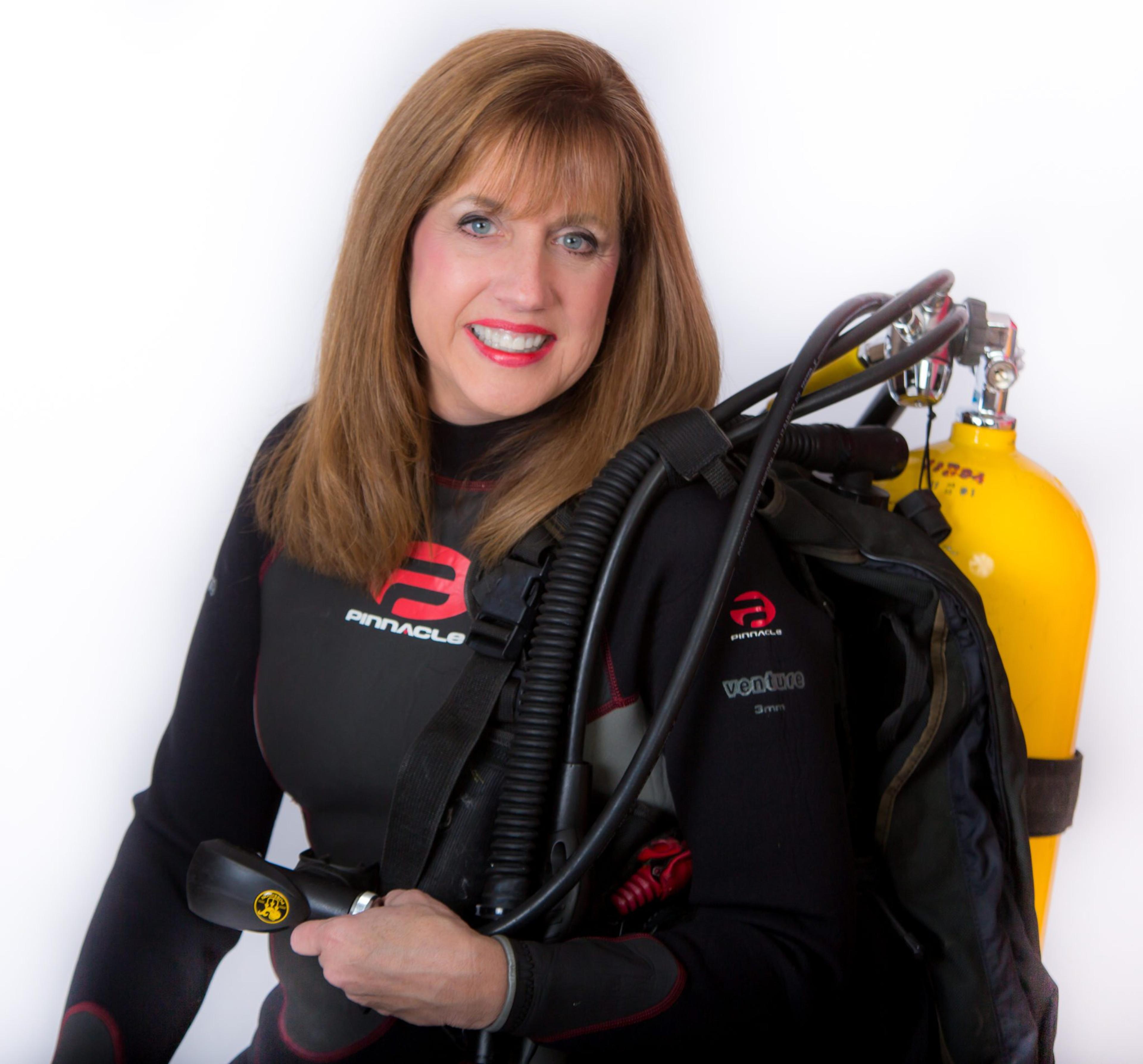Underwater Explorer Discovers Health Benefits of Diving
Shandra Martinez
| 4 min read

Valerie van Heest is an underwater explorer and historian who has been involved in the discovery and archaeological documentation of numerous, historic Great Lakes shipwrecks. While many women scuba dive, she is among a smaller portion who does so in the cold depths of the Great Lakes.
Van Heest credits her hobby with unexpected health benefits.
“It’s good for mental health, almost more than physical,” said van Heest, who says she keeps in shape for the sport that requires carrying heavy air tanks and donning a dry suit, which is a bit like wearing a waterproof snowmobile suit underwater.
Daily regimen for diving
Her physical regimen includes daily walks, stretches, and drinking plenty of water because she’s inhaling dry air while underwater is dehydrating.

Valerie van Heest
As for mental health, van Heest says, “While the safest dive plan utilizes a buddy system, you’re still very independent. Underwater, you’re looking out for yourself. And every time you make a dive successfully, your self-confidence grows.”
It’s a family sport for van Heest, who has been diving since she was a teen. Her husband and two teen daughters dive, as well, although her daughters prefer the warmer saltwaters off the coasts of Florida or Mexico, where they can observe colorful fish.
In Lake Michigan, most scuba diving is focused on exploring shipwrecks. Van Heest has explored roughly 100 shipwrecks — 20 of which she and her team discovered. Combining her passion for maritime history with her professional writing and design experience, van Heest has created museum exhibits at the Port of Ludington Maritime Museum, the Michigan Maritime Museum in South Haven and the Chicago Maritime Museum among others.
‘A different world’
Van Heest describes being underwater as a sort of meditation that is healthy for her mind and body.
“You hear the waves and you hear talking above, and then you get into the water and, boom, it changes. All you hear is the in-out of your breathing and little bubbles,” she said. “It’s a different world. The water is much clearer now than it was decades ago when she started diving. We have visibility in the Great Lakes that’s akin to the ocean. You see the different shades of blue, and the bubbles and the sunlight filtering down. It’s so beautiful.”
Sport divers generally limit their dives to 130 feet or less. But van Heest has done a number of technical dives that require breathing a special blend of gas and oxygen that allows a diver to keep a clear head at depth. Normal air compressed and breathed in deep water can have narcotic effects that could be as dangerous for divers as driving while under the influence. She prefers to keep a clear head on land too and rarely drinks alcohol.
In the Great Lakes, diving is limited to the summer months. When she was documenting the three-masted schooner Thomas Hume, built in 1870 and discovered about 25 miles offshore from St. Joseph, she did 40 dives that summer. Because the wreck is at 150 feet deep and requires decompression, a process to slowly off gas compressed air, each dive is limited to about 20 minutes.
Hall of Fame inductee
Van Heest is an inductee in the Women Divers Hall of Fame and the recipient of a State History Award from the Historical Society of Michigan for her work preserving and promoting the state’s submerged maritime history. She has written six books and numerous magazine articles, and has appeared in programs on the National Geographic, History, and Travel channels. She is a partner in the exhibit design firm Lafferty van Heest & Associates and serves as a director of the nonprofit Michigan Shipwreck Research Association, spearheading the search for and documentation of lost ships.
Van Heest thinks the sport offers longevity. About eight years ago, she was diving on a shipwreck with an octogenarian.
“He had been diving all of his life and, at 88, he was still going strong,” she said. “He didn’t use double tanks and heavy-duty suits, he just kind of kept it real minimal so that it wasn’t a big weight strain. He didn’t go that deep. There is no reason, if you keep fit, why can’t you dive into your 80s.”
Related:
Photo credit: Joe Oliver





